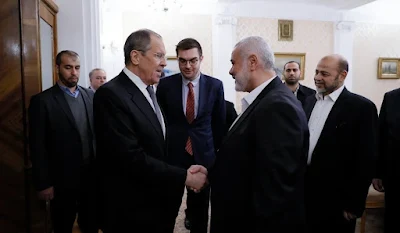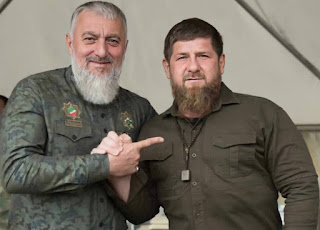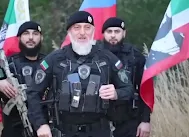
Lavrov receives Hamas delegation headed by Ismail Haniyeh
Today, Monday, the Russian Foreign Ministry announced that Foreign Minister Sergey Lavrov will meet with a delegation of the Hamas movement headed by the head of the Political Bureau, Ismail Haniyeh.
"On September 12, the Russian Foreign Minister, Sergey Lavrov, received the head of the Hamas political bureau, Ismail Haniyeh, who is in Moscow at the head of the movement's delegation," the Russian Foreign Ministry said in a statement.
The statement pointed out that "the talks focused on the developments in the Middle East, especially the Palestinian problem."
According to the Russian Foreign Ministry, Moscow stressed "the importance of speeding up the restoration of Palestinian national unity on the political platform of the Palestine Liberation Organization, and the need to resolve the Palestinian-Israeli conflict on the basis of international law, relevant UN Security Council resolutions, the United Nations General Assembly and the Arab Peace Initiative."
On Saturday, the head of the political bureau of the Palestinian "Hamas" movement, Ismail Haniyeh, arrived in the Russian capital, Moscow, accompanied by a delegation from the movement's leadership.
In a press statement, Taher al-Nono, media advisor to Hamas leader, said that Haniyeh "has arrived in Moscow on a visit during which he intends to meet with Russian Foreign Minister Sergei Lavrov, and a number of Russian leaders and officials."
This visit comes after a high-level delegation from the "Hamas" movement, headed by the head of the International Relations Office, Musa Abu Marzouk, visited Moscow last May, aimed at holding talks with Russian officials on a number of important files related to the developments of the Palestinian cause.
Moscow criticized the position of Western countries in dealing with the recent Israeli aggression on the Gaza Strip, noting at the time that "the West is very concerned about the situation in Ukraine... while it is indifferently watching the Israelis kill the Palestinians and destroy the Gaza Strip," describing the matter as a continuation of the "Western propaganda machine."

















































